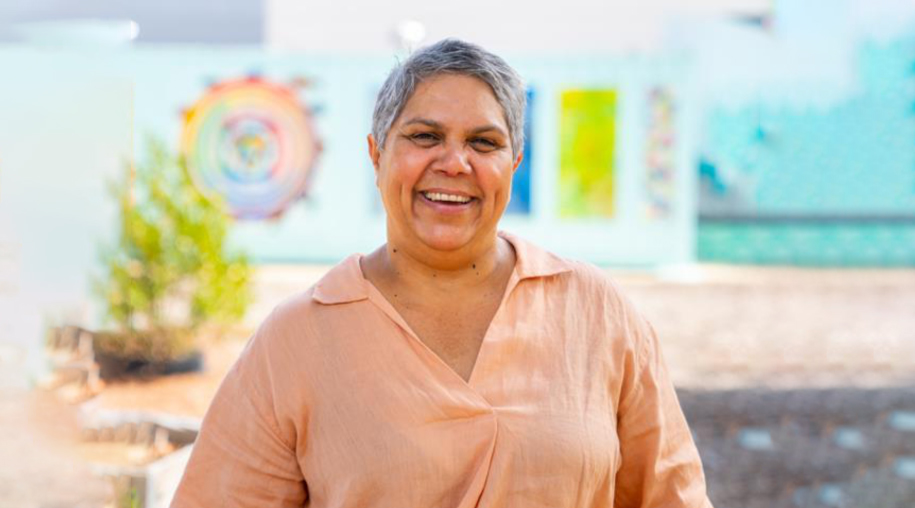This is audio part of the Yarning about Stroke collection. Listen to more stories from mob.
Kerri Colgate is a Noongar and Yamatji woman from the Whadjuk and Yuat clans and lives on Whadjuk Noongar Country in Boorloo, Perth. Kerri has her own part-time consultancy business specialising in disability support, capacity building and general cultural consultancy.
She shares her experience working with her yarning group and the impact it has had on mob. Kerri says part of her role is learning a lot about how she can support mob in the yarning group space. She also assists in translation of cultural ways to non-Indigenous providers or non-Indigenous health workers.
Kerri says it is really important for non-Aboriginal organisations to consider when working with mob. Particularly in the recovery stage, they can't not consider the cultural elements of somebody, particularly around their identity, where they come from, what they used to be like etc.
It is really important that when working with mob non-Aboriginal organisations must consider the cultural elements of somebody, particularly around their identity, where they come from, what they used to be like etc.
Transcript
I can probably share my experience, positioning myself working with my yarning group mob. And I've come such a long way in terms of learning a lot about stroke.
I've worked in health all my life. However, I think when you're on the coalface of like supporting people post stroke and in there throughout their recovery, and throughout their sort of reconnecting with themselves and community again is really quite ... what I've felt is rewarding. It's just inspiring to see how far, the incredible hard work that people have achieved, to how far they've come. To be now back into community after, you know, having a stroke.
I can always have one lady in mind who was from Roebourne. So Roebourne's a very regional, remote community far north, in the Pilbara. And she had to stay at one of the Brightwater facilities. So, I'm sure everyone's heard of Brightwater before. So that was part of her rehabilitation. So she was down here on her own, away from her children, away from her grannies. Away from everybody. She had nobody. And thankfully she, you know, through the promotion of yarning groups for services and particularly speech pathologists, she was able to get referred to us.
She was with us for a year and to watch her journey and how much she had grown was just amazing.
So part of my role through that was really sort of learning a lot from, you know, her position, how communication was an issue. And how I could support that in the yarning group space. And also to assist in any sort of translation of cultural ways to her non-Indigenous providers or, you know, non-Indigenous health workers such as a speechie, O.T. etc. And I think that's really important that a lot of our non Aboriginal organisations must consider when working with our mob. Particularly in that recovery stage. They can't not consider the cultural elements of somebody, particularly around their identity, where they come from, what they used to be like, all that sort of stuff.
It is hard enough for people to readjust to the new way of living. So to have that extra, you know, struggle or challenge, to get back to somewhat of, you know, their normality is really hard.
So, we need to ensure that we're supporting the identity of someone rather than imposing that Wadjela way of doing things, the white way of doing things and that world view. So really just I guess I just wanted to share that one experience that I had with her.
And I will just finish off by saying she's actually returned home now. And she's doing really incredibly well and yeah, I know. That was the best outcome and you know, the part of the good news story, I guess, for her.
And there's been so much support provided for the family in terms of how to support her with, around her communication and aphasia and all that sort of stuff.
So that was really also awesome too.






